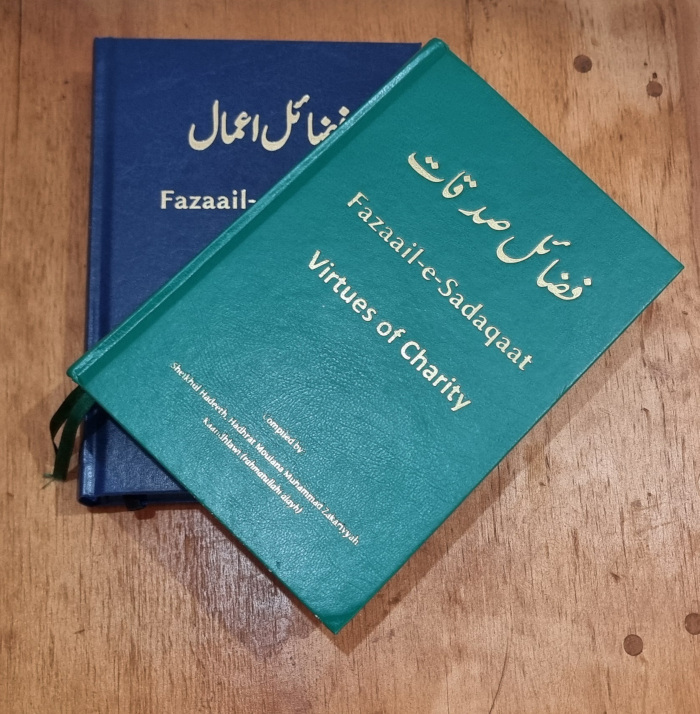
The Disastrous Consequence of Feeling Proud Over One’s Good Deeds
Among the important etiquettes to follow, when giving zakaat is that the one discharging the zakaat should regard the amount he is giving for the sake of Allah Ta‘ala to be an insignificant and small amount. If he regards the amount which he is giving to be significant and large, then there is fear that he may fall into the sin of feeling proud over his good deeds. Becoming proud (over one’s good deeds) is among the worst and most destructive sins, which causes the rewards of one’s good deeds to be destroyed.
In the Holy Quraan, Allah Ta‘ala has reprimanded the Muslims for feeling proud (of their large numbers on the occasion of Hunain) saying:
لَقَدۡ نَصَرَکُمُ اللّٰه فِیۡ مَوَاطِنَ کَثِیۡرَة ۙ وَّ یَوۡمَ حُنَیۡنٍ ۙ اِذۡ اَعۡجَبَتۡکُمۡ کَثۡرَتُکُمۡ فَلَمۡ تُغۡنِ عَنۡکُمۡ شَیۡئًا وَّ ضَاقَتۡ عَلَیۡکُمُ الۡاَرۡضُ بِمَا رَحُبَتۡ ثُمَّ وَلَّیۡتُمۡ مُّدۡبِرِیۡنَ ﴿ۚ۲۵﴾ ثُمَّ اَنۡزَلَ اللّٰه سَکِیۡنَتَه عَلٰی رَسُوۡلِه وَعَلَی الۡمُؤۡمِنِیۡنَ وَ اَنۡزَلَ جُنُوۡدًا لَّمۡ تَرَوۡها
Allah gave you victory (over your enemies) in many places and on the Day of Hunain, when your large numbers made you feel proud, but it did not help you in any way; and (the disbelievers began to shoot arrows at you in large numbers which caused such a great worry among you that it seemed as though) the earth closed up on you, despite its vastness; then you turned back (from the battlefield) fleeing. Then, Allah Ta‘ala sent His calmness and tranquillity upon His Rasul and upon the Mu’mineen (believers) and He sent down armies (of angels) which you could not see (in order to help you). (Surah Taubah v. 25-26)
The incident of the Battle of Hunain is well-known and is found in the authentic books of Ahaadith, and the details of this battle are reported in numerous Ahaadith. A brief account of the expedition is given below:
In the eighth year after the hijrah, during the month of Ramadhaan, Rasulullah (sallallahu ‘alaihi wasallam) conquered Makkah Mukarramah. Thereafter, Rasulullah (sallallahu ‘alaihi wasallam) travelled to the tribes of Hawaazin and Thaqeef in the same month of Ramadhaan to wage war against them.
In this battle, the Muslims were larger in number compared to all the previous battles when their number was small. Therefore, some of them felt proud over their large numbers and said that they could not be defeated due to their being large in number.
Since Allah Ta‘ala does not like people who boast, the Muslims were made to suffer defeat in the beginning of the battle. The above verse refers to this very incident:
اِذۡ اَعۡجَبَتۡکُمۡ کَثۡرَتُکُمۡ فَلَمۡ تُغۡنِ عَنۡکُمۡ شَیۡئًا
your large numbers made you feel proud, but it did not help you in any way
Hazrat Urwah (rahimahullah) says, “When Rasulullah (sallallahu ‘alaihi wasallam) had conquered Makkah Mukarramah, the tribes of Hawaazin and Thaqeef rose up against the Muslims and gathered at Hunain.”
Hazrat Hasan (rahimahullah) is reported to have said, “After the conquest of Makkah Mukarramah, the Muslims from Makkah Mukarramah also joined the troops from Madinah Munawwarah (in order to fight against the tribes of Thaqeef and Hawaazin). At that time, some people said, ‘By Allah! Now that we have joined forces, we can make a united attack against the tribes of Hunain.’ Rasulullah (sallallahu ‘alaihi wasallam) was grieved and displeased by their proud and boastful remarks.” (Durre Manthoor)
In short, the Muslims had to suffer defeat on account of their being boastful and proud over their large numbers.
The Ulama have said that the more insignificant you regard your good actions to be, the more acceptable they become in the sight of Allah Ta‘ala (on account of the humility in one’s heart). Similarly, the more serious and great the sinner regards his sin to be, the less will be the degree of the sin in the sight of Allah Ta‘ala.
In other words, even if one commits a minor sin, one should think to himself, “I have committed a most foolish act! I should never have done this!” In no case should one take his sin lightly and think, “It was a small mistake on my part, so what’s the problem?”
(Fazaa’il-e-Sadaqaat [English] pg. 306-307, [Urdu] pg. 349-351)
 Ihyaaud Deen An Effort to Revive Deen in Totality
Ihyaaud Deen An Effort to Revive Deen in Totality



